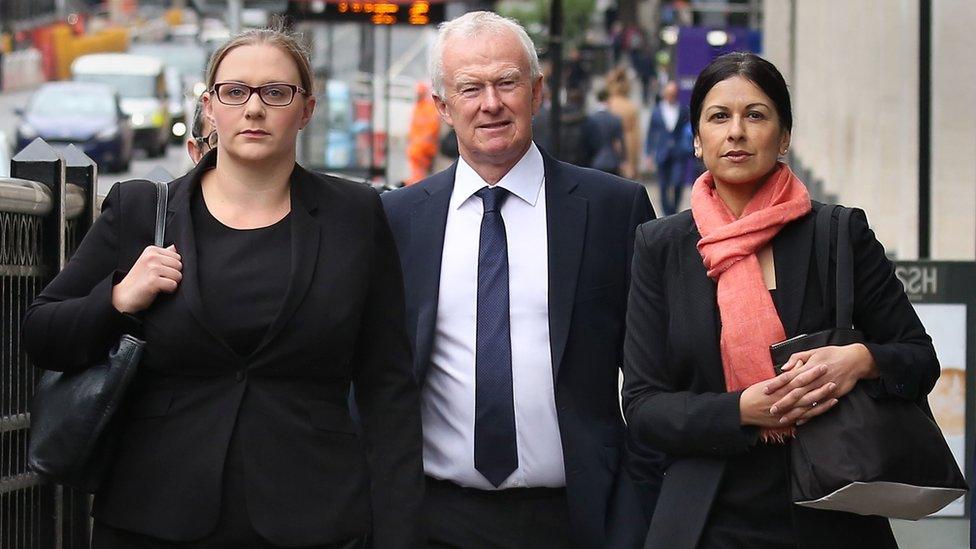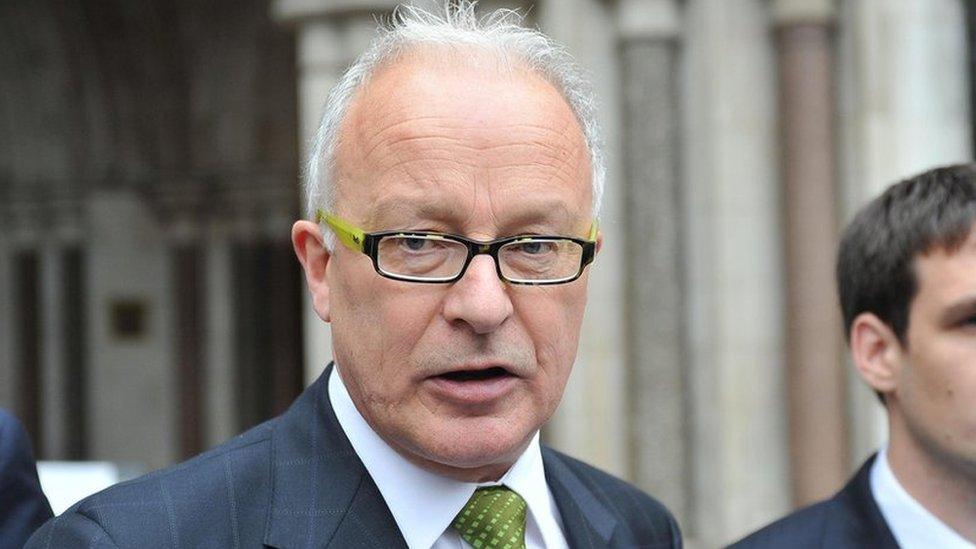Leigh Day lawyers accused of misconduct over Iraq claims
- Published

Left to right: Anna Crowther, Martyn Day and Sapna Malik are accused of misconduct
A law firm has been accused of misconduct over the way it handled claims that British troops tortured civilians during the Iraq War.
Leigh Day failed to disclose evidence its Iraqi clients were members of a "murderous" militia group when it represented them in compensation cases, a tribunal has heard.
The claims caused years of anguish to falsely accused soldiers, it was told.
Leigh Day and solicitors Martyn Day and Sapna Malik deny 19 misconduct charges.
Fellow solicitor Anna Crowther also denies one allegation of misconduct at the Solicitors Disciplinary Tribunal in London.
Without the firm's failures it was unlikely a £31m public inquiry into claims of murder and torture by UK soldiers would have taken place, the tribunal was told.
'Years of worry'
Representing the Solicitors Regulation Authority, Timothy Dutton QC, said: "Over a period of more than seven years, Martyn Day, Sapna Malik and Leigh Day made and maintained allegations that soldiers in the British Army had murdered, tortured and mutilated Iraqi civilians."
He said the lawyers had continued to act for their clients despite having a document showing they were members of a militia associated with the Mahdi Army, which had ambushed British troops.
Mr Dutton said the OMS (Shia militia group Office of the Martyr Al Sadr) detainee List had been in their possession from 2004 onwards and "undermined their clients' claims they were innocent bystanders in the Battle of Danny Boy".
The battle occurred on 14 May when British soldiers were ambushed near to the city of Al Amara by Iraqi insurgents of the Mahdi Army.
The tribunal heard Leigh Day had received some £9.5m for its work on the compensation cases.
The firm has always said the failure to disclose the detainee list was caused by "human error" and not professional wrongdoing.

Mr Dutton said if the list had been made available to others, it was unlikely legal aid would have been granted to Public Interest Lawyers and the long-running Al-Sweady inquiry would not have gone ahead.
Public Interest Lawyers, which submitted multiple allegations of misconduct by British troops during the Iraq War, has since closed down and its lead lawyer, Phil Shiner, has been struck off for misconduct.
Mr Dutton said: "If the respondents had discharged their duties, British soldiers and their families would not have had to endure torment and years of worry arising from false allegations endorsed by solicitors and members of the profession, made not just in claims but to the world's media."
The Al-Sweady inquiry concluded in its final report that the conduct of some soldiers towards detainees breached the Geneva Convention.
But it was highly critical of the claims it was initially set up to investigate - that Iraqi detainees had been murdered, mutilated and tortured following the Battle of Danny Boy.
It found that British forces responded to a deadly ambush by insurgents with "exemplary courage, resolution and professionalism".
Among the charges the lawyers face is an allegation of prohibited payments made to a person called Mazin Younis, and of improper conduct at a 2008 press conference involving Mr Shiner, where it was claimed that British soldiers had carried out the abuse.
The tribunal, which is scheduled to last seven weeks, is expected to be the longest and most expensive in the Solicitors Disciplinary Tribunal's history.
- Published2 February 2017

- Published10 October 2016
